In an interview with Dan Tri reporter , the Korean strategist also mentioned some notes on tactics, youth training and sustainability in developing the next generation of Vietnamese football.
Hello Mr. Bae Ji Won, thank you for accepting Dan Tri's interview.
Vietnam U23 won the Southeast Asian U23 Championship on July 29 after defeating Indonesia U23 - the third consecutive title and right on the field of one of the toughest opponents in the region. What do you think this result reflects?
- First of all, I would like to congratulate the U23 Vietnam team on this impressive victory. I also look forward to the further development of Vietnamese football in the future.
Vietnam football has won the U23 Southeast Asian Championship twice in a row before, so the chance of winning this tournament is clearly higher than Indonesia. However, this is still not an easy victory, especially when the final match takes place on the opponent's home field.
Indonesia applied strong and fierce pressure, but in the end still could not win. This shows the difference in quality between the two teams, especially in the ability to control the match and organize tactics.
Football cannot be won solely by individual ability. Indonesia has the advantage of naturalized players, but lacks the organization, coordination and concentration of U23 Vietnam.
Statistics show that U23 Indonesia controlled the ball up to 68% compared to 32% of U23 Vietnam, they had 507 passes compared to 235 of U23 Vietnam. However, the number of shots and shots on target were equal.
This shows that Indonesia played more proactively, but did not create many truly dangerous opportunities. The U23 Southeast Asian Championship is a preparation tournament for the U23 Asian and Olympic qualifiers, so the championship also raises many expectations, and is a new challenge for Vietnamese football.
There are currently four teams in the region capable of competing for the title. However, Asian tournaments are of a completely different nature and level. Vietnamese football needs to improve both quality and quantity - which has been performing well in the regional arena - to prepare for larger continental tournaments. That requires more careful preparation and more systematic support than at present.
This will be the key factor to help Vietnamese football make a leap forward, as it did with the runner-up position at the 2018 U23 Asian Championship in Changzhou (China).
Many people think that coach Kim Sang Sik acted unsportsmanlike when he placed a water bottle to make it difficult for U23 Indonesia in throw-in situations. What is your opinion?
- Coach Kim Sang Sik explained that placing the water bottle had no tactical intention. In my opinion, we should not rush to think that it was intentional.
Of course, if the opponent constantly puts pressure from throw-ins, any team would want to minimize the risk. However, that action does not really bring a big advantage.
If he really did disrupt his opponent, Mr Kim could be criticised for his sportsmanship. But I don't think he intended to engage in such unsportsmanlike conduct.
Dinh Bac was voted the best player of the U23 Southeast Asia tournament. He had many shining moments. Do you think Dinh Bac has matured after his stumbles?
- A player's career always has ups and downs. When they are too confident or subjective, they are easily judged negatively and lose their form. However, if they recognize the problem and know how to correct their mistakes, they can completely come back.
When young, many players are easily distracted. But when they are more mature and have more experience, they will play more consistently. With Dinh Bac, the previous problems can be considered a temporary phenomenon in a talented player.
Professionally, how do you evaluate the playing style that coach Kim Sang Sik built for U23 Vietnam?
- I see that U23 Vietnam is loyal to the 3-center-back formation. Coach Park Hang Seo, Troussier and Kim Sang Sik all use this system. Although it has brought many successes, I think that Vietnamese football needs to change to diversify tactics, depending on the strengths of each player.
If you use one system for too long, opponents will easily figure it out. Some players may perform better in a back four.
At Jeonbuk Hyundai Club (South Korea), Coach Kim Sang Sik was criticized for being too defensive and not exploiting the full potential of his players. Although Jeonbuk is an attacking team, he chose a defensive approach. As a result, the team did not achieve the expected results.
That style of play is still being applied in U23 Vietnam. But the problem is that when entering big tournaments such as the U23 Asia qualifiers or the rematch with Malaysia at the national team level, the defensive style of play will no longer be effective.
Even when meeting Indonesia, if the Vietnamese team only plays defensively, then against stronger teams, we are forced to play defensively.
That is why Coach Park Hang Seo’s success is worth noting. Mr. Kim needs to change his perception of the overly defensive style of play – which he adopted as a player – to adapt to modern football.
Can you elaborate on coach Kim Sang Sik's football philosophy?
- Coach Kim Sang-sik focuses on defense, focusing on solidity and counter-attacks. At Jeonbuk, despite having a strong squad, he still chose a safe and stable playing style, causing a lot of controversy. Because he used to be a defensive midfielder, that philosophy still affects his coaching style.
However, when opponents have good individual skills, his team often faces difficulties. Therefore, in the Korean K-League, he is underrated in terms of tactical ability. To succeed in big tournaments such as the Olympic qualifiers or the Asian U23 tournament, Mr. Kim needs different tactics.
Coach Kim Sang Sik needs to have a detailed plan to make the most of the qualities of young Vietnamese players. Playing defense is not enough, there needs to be a balance between attack and defense to achieve higher efficiency.
Expanding on the issue, how do you view the quality of youth training in Vietnam, judging from the success of this U23 generation? Is Vietnamese football really doing well, or is Southeast Asian youth football slowing down?
- Every year, Vietnamese football still discovers and trains many promising young players. Countries in the region are also paying great attention to developing successor resources. The U23 Southeast Asian tournament is a stepping stone towards the Olympic qualifiers and the U23 Asian qualifiers.
However, the U23 Southeast Asian tournament is still highly appreciated for its national pride and the great interest of fans in the region. Currently, this tournament is as "hot" as the Asian tournaments or the Olympics because of the competition between Southeast Asian countries.
However, if Vietnam wants to reach the continental and world stage, it needs a better system and infrastructure, along with more attention and investment. The four teams in the region, including Vietnam, Indonesia, Malaysia, and Thailand, currently have more opportunities to compete for the championship than the other teams.
Vietnamese football should not be satisfied with its current position as the Southeast Asian champion if it wants to go further. Although this victory is something to be proud of and should be recognized, Vietnamese football needs to build a better, more effective system to achieve success at the international level.
Instead of just beating weaker teams in the region, Vietnamese football should focus on improving the system, competition environment and preparing for major tournaments in Asia and the world.
It is important to remember that qualifying for the Olympics or the World Cup is not simply a reward for winning the Southeast Asian Championship.
In your opinion, how can this generation of players contribute to the goal of developing Vietnamese football by 2030?
- The U23 team that won the Asian runner-up in 2018 has been the backbone of Vietnamese football for a long time. However, they have not yet achieved big goals such as winning tickets to the Olympics or World Cup.
Part of the reason is that they lack the opportunity to compete in top football environments in Asia or Europe. Although some players have gone to Japan, Korea, the Netherlands, France, but none have really been able to compete.
Vietnamese football needs to go beyond the limits of Southeast Asia, aiming to become a formidable opponent in the continent and needs to create conditions for young players to compete abroad and gain experience.
Having more players playing in Japan, Korea or Europe will help Vietnam get closer to the Olympic and World Cup dream. Meanwhile, rivals like Indonesia, Malaysia, and Thailand are actively naturalizing players with dual nationality to serve this strategy.
Vietnamese football also needs to set higher goals and gradually realize them, with support from the national level.
Thank you for the conversation!
Content: Ngoc Trung
August 8, 2025 - 06:32
Source: https://dantri.com.vn/the-thao/chuyen-gia-han-quoc-hlv-kim-sang-sik-can-thay-doi-nhan-thuc-ve-loi-choi-20250804212847470.htm



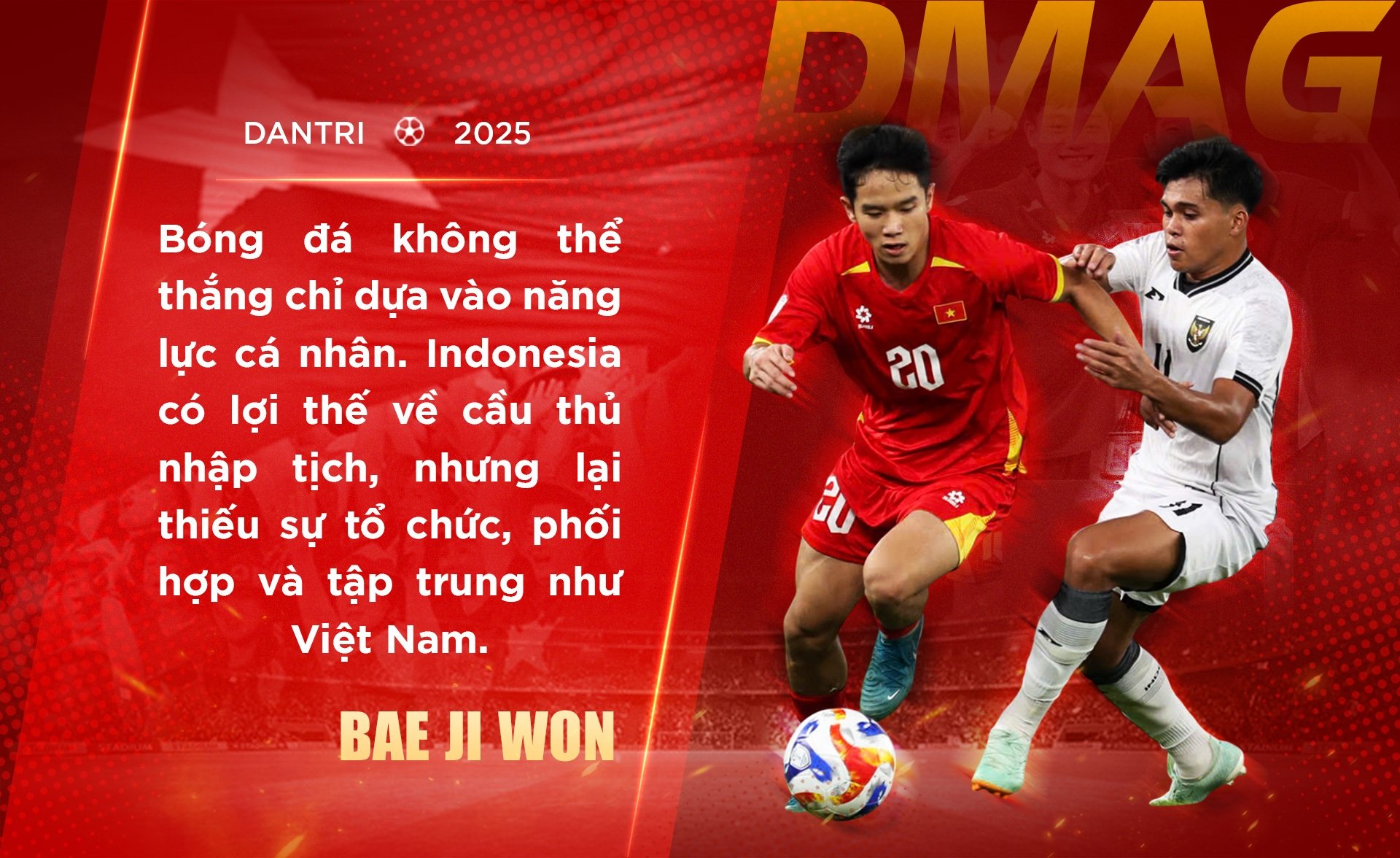
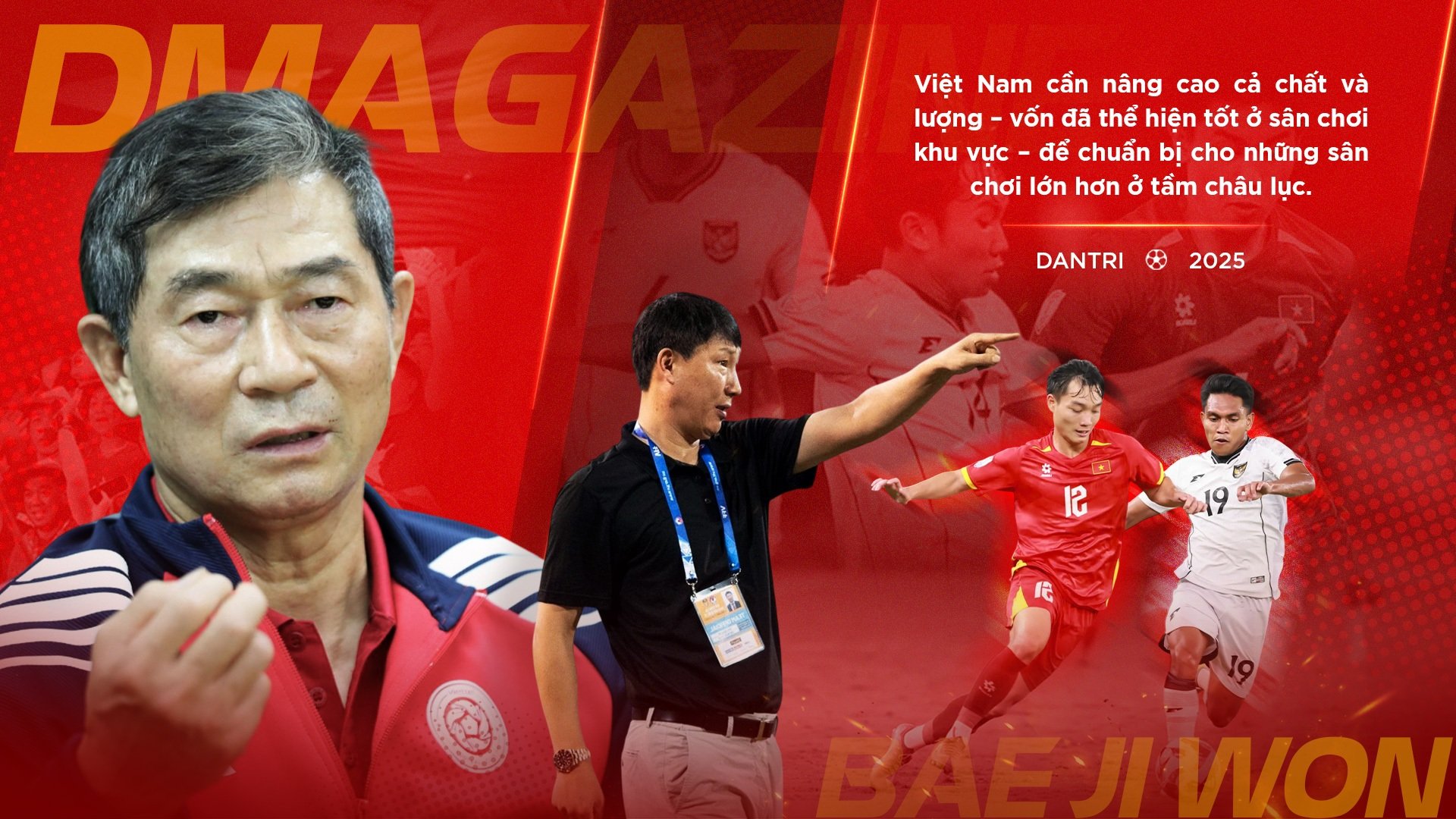

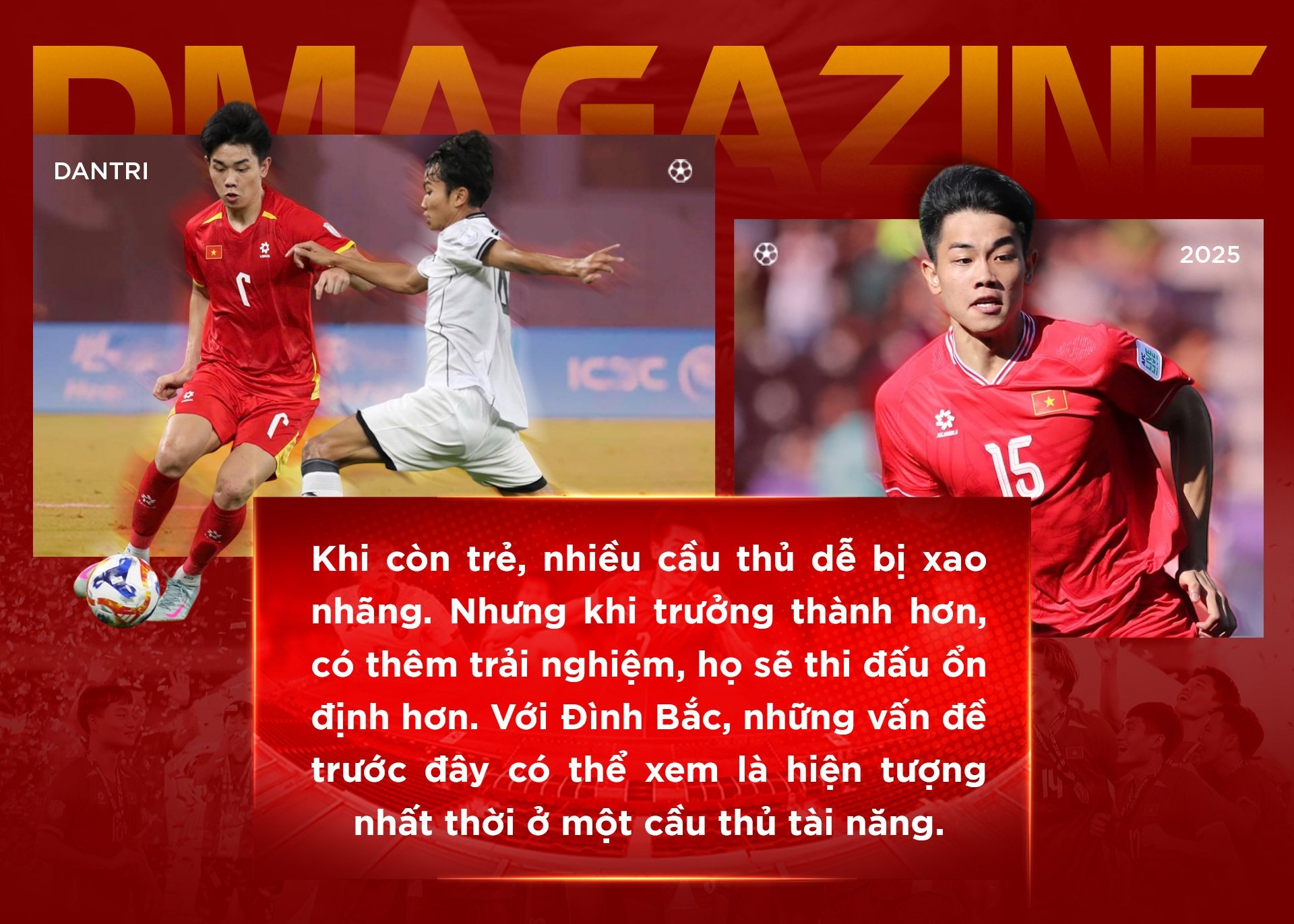
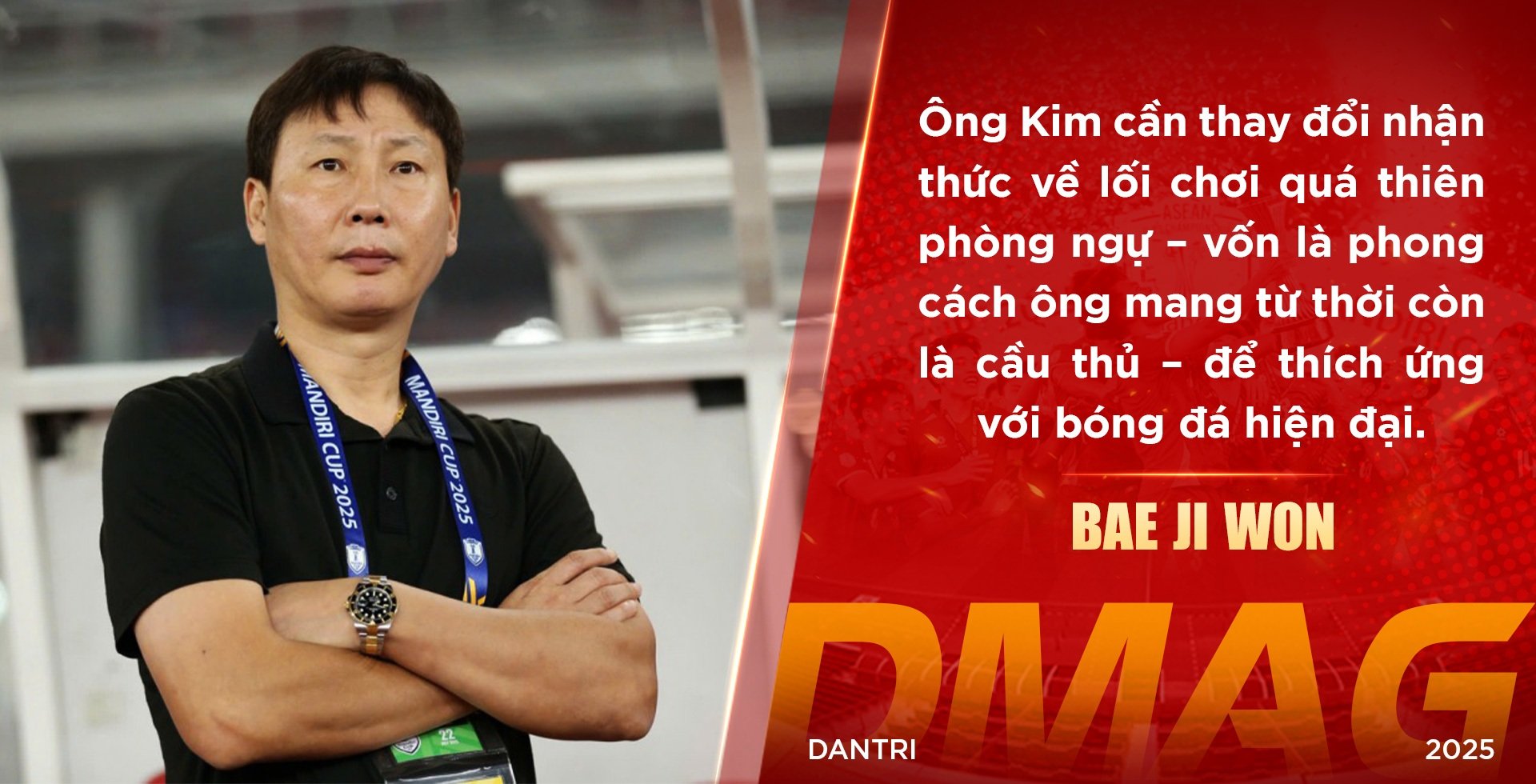
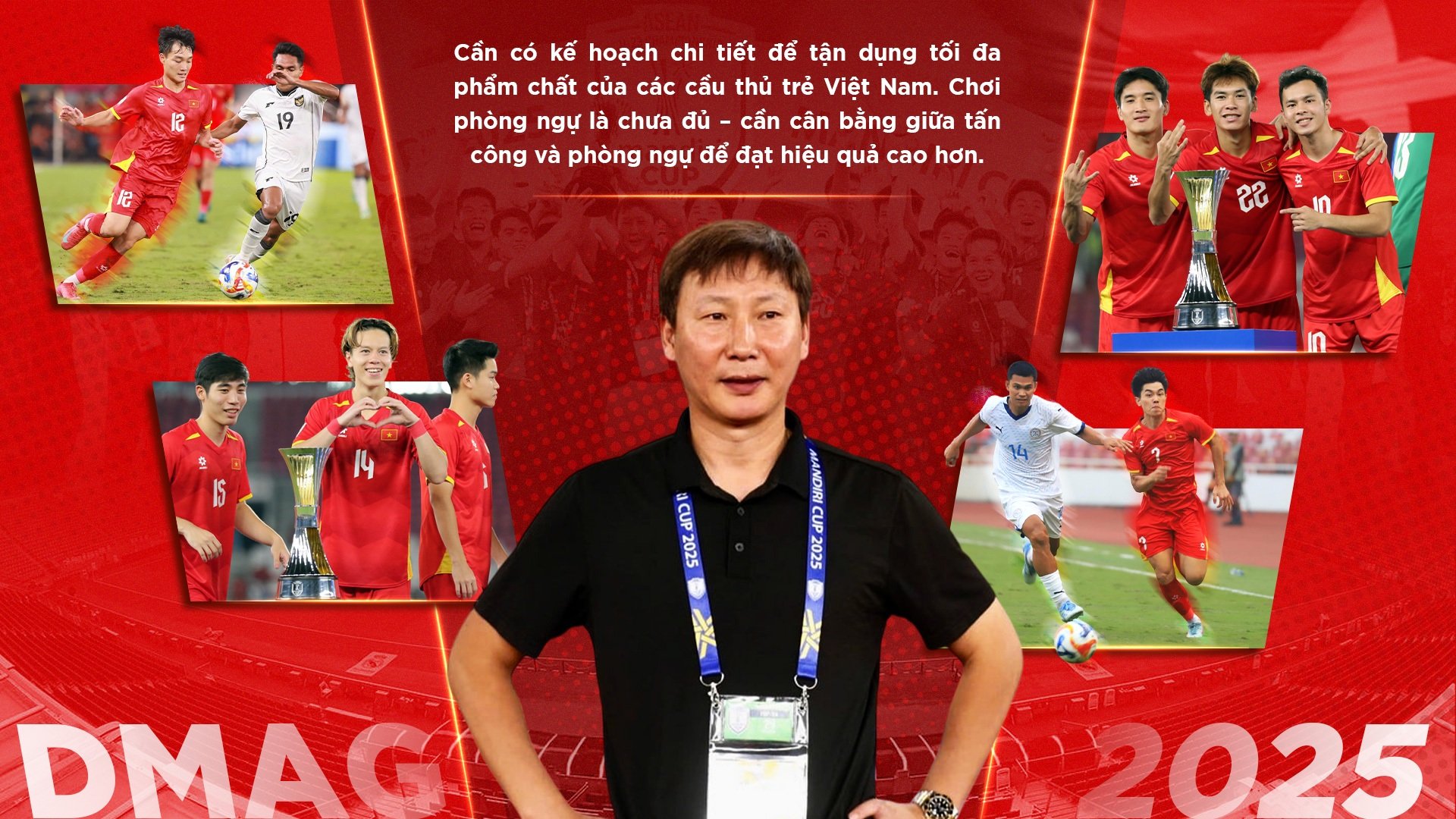

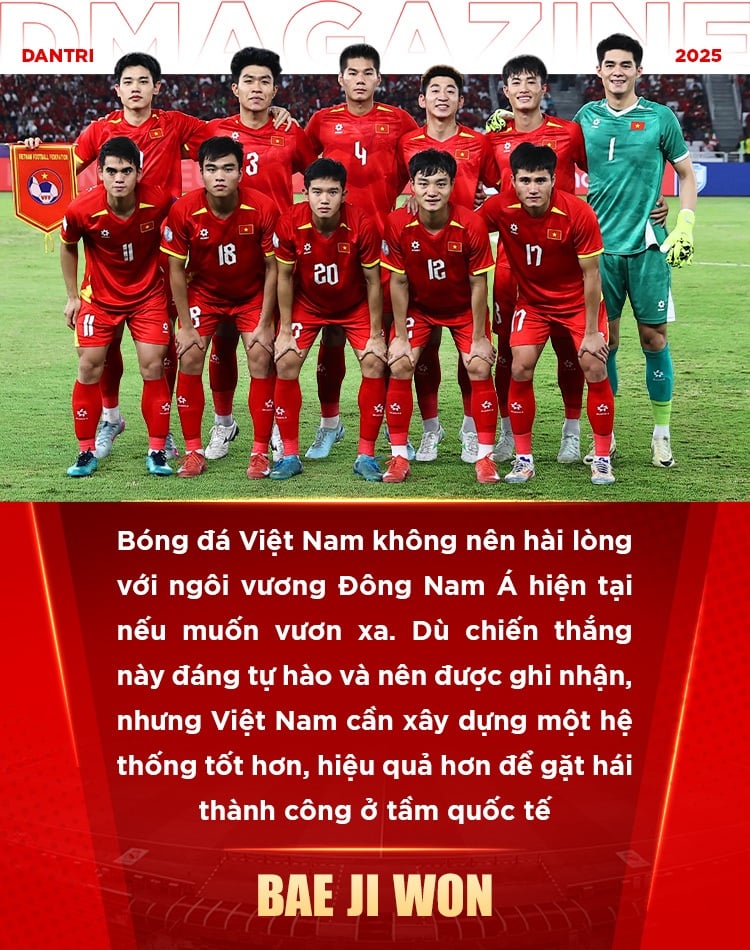
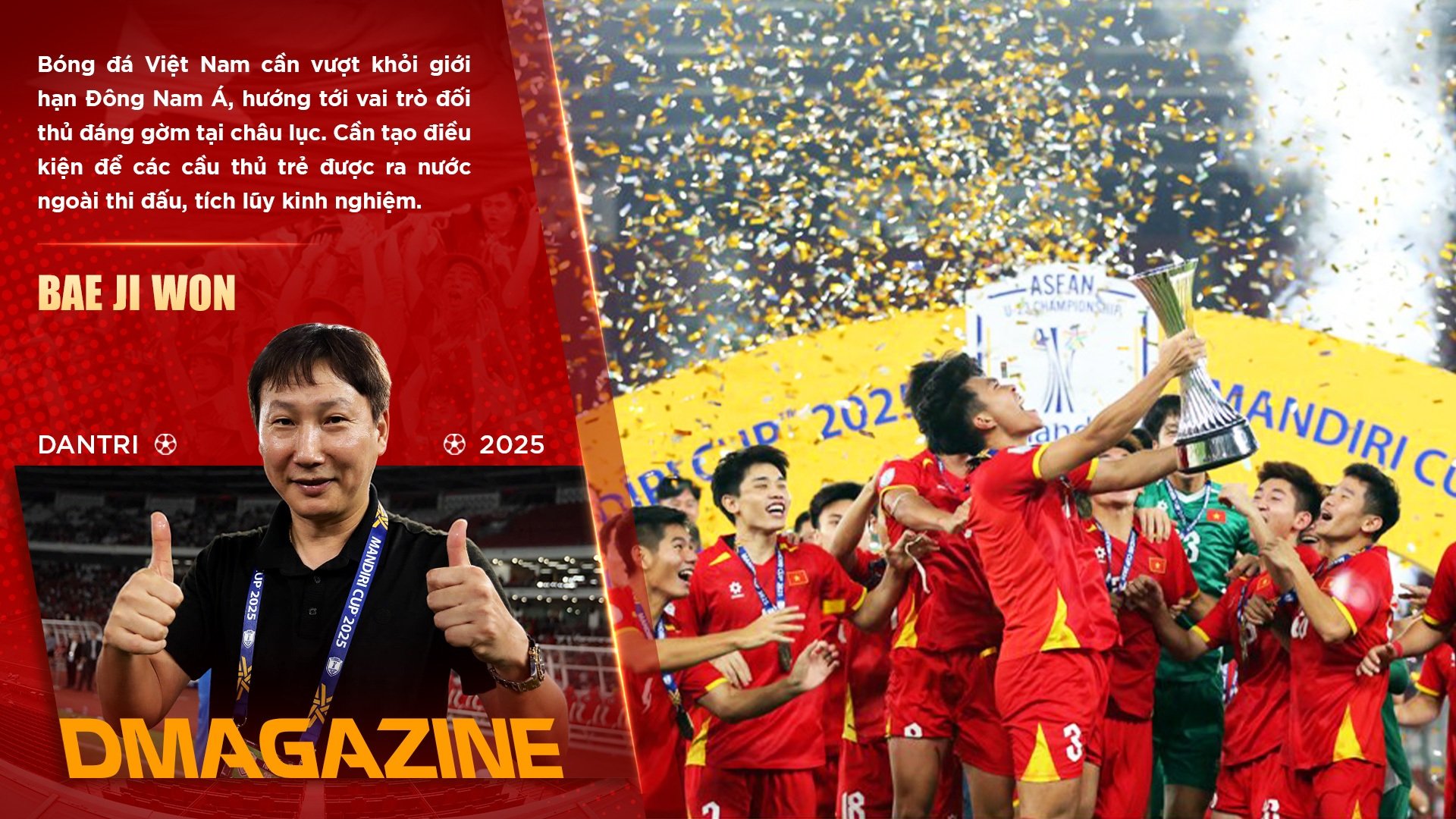
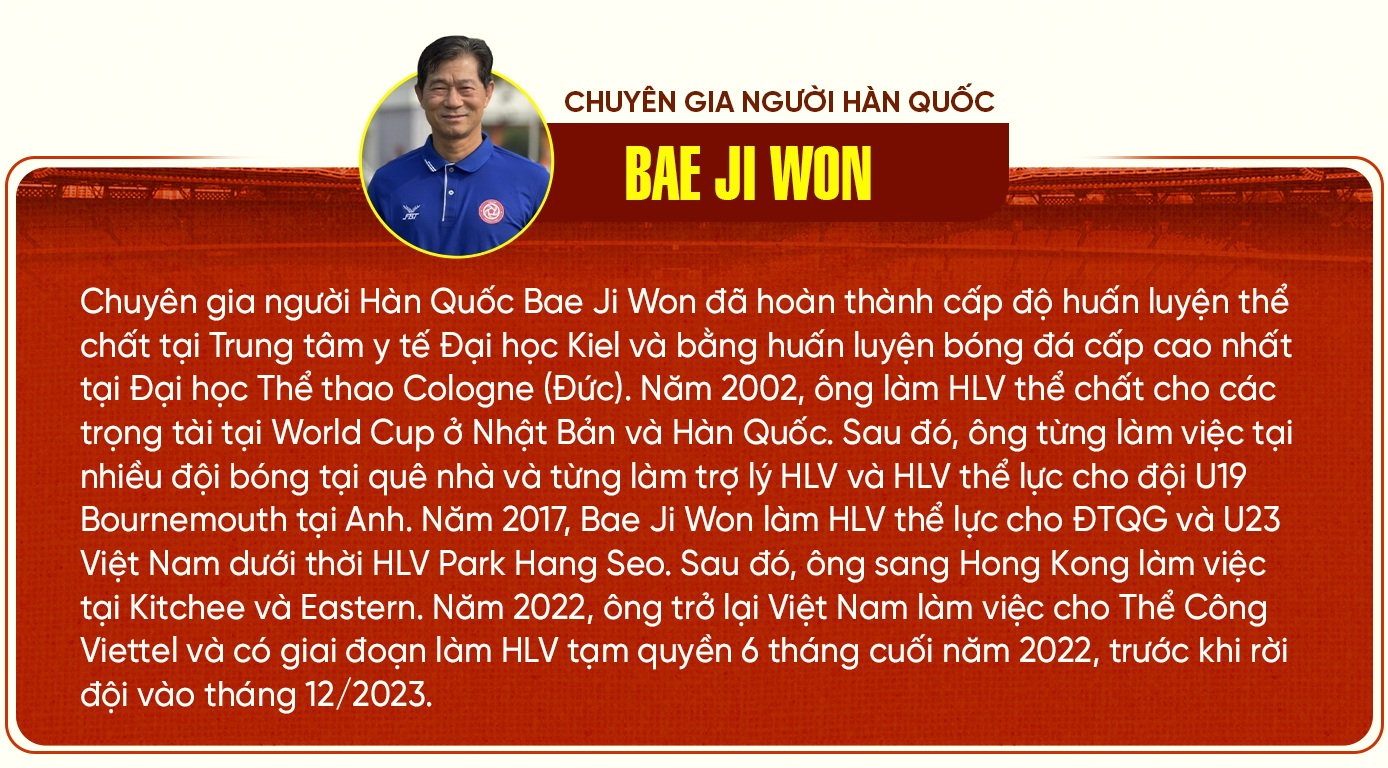

![[Photo] 60th Anniversary of the Founding of the Vietnam Association of Photographic Artists](/_next/image?url=https%3A%2F%2Fvphoto.vietnam.vn%2Fthumb%2F1200x675%2Fvietnam%2Fresource%2FIMAGE%2F2025%2F12%2F05%2F1764935864512_a1-bnd-0841-9740-jpg.webp&w=3840&q=75)


![[Photo] Cat Ba - Green island paradise](/_next/image?url=https%3A%2F%2Fvphoto.vietnam.vn%2Fthumb%2F1200x675%2Fvietnam%2Fresource%2FIMAGE%2F2025%2F12%2F04%2F1764821844074_ndo_br_1-dcbthienduongxanh638-jpg.webp&w=3840&q=75)

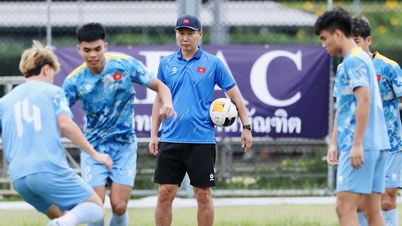

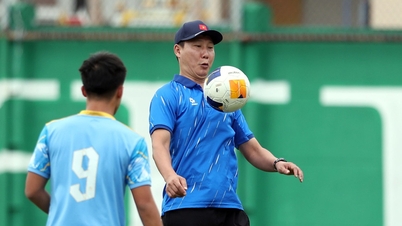
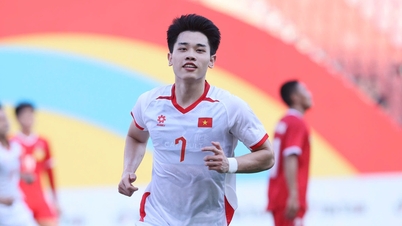

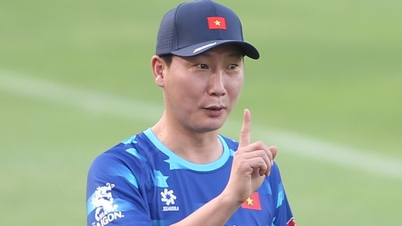
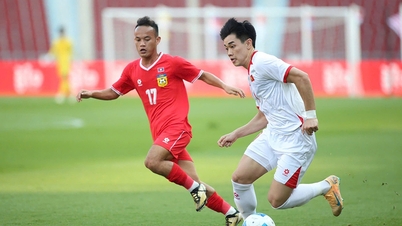

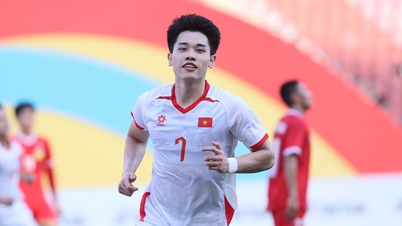
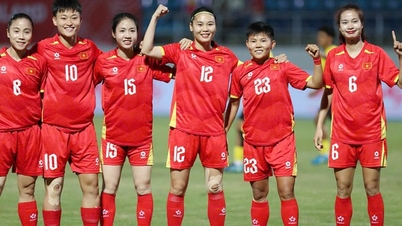

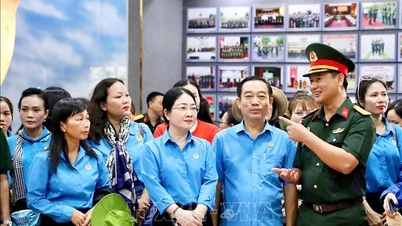




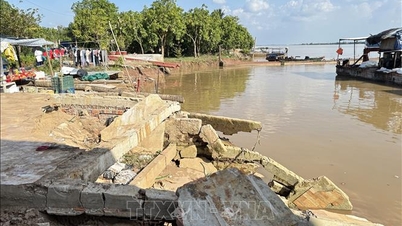







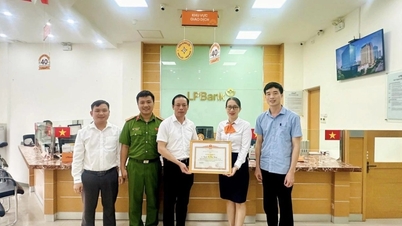
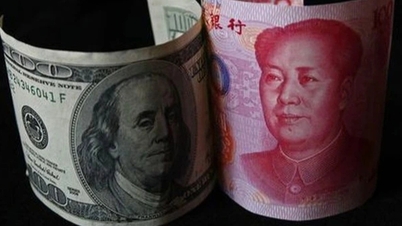








































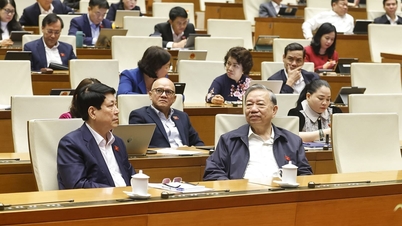





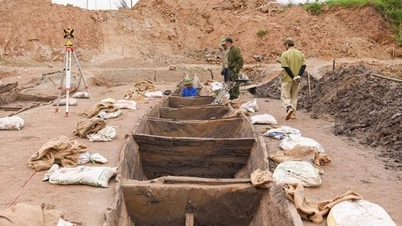


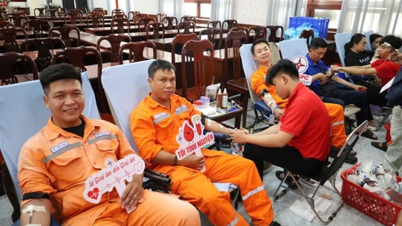

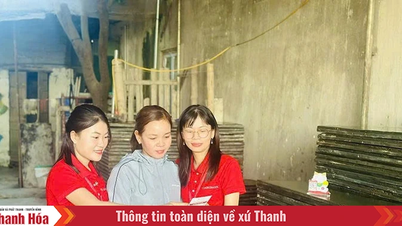


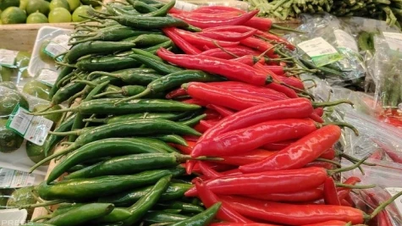
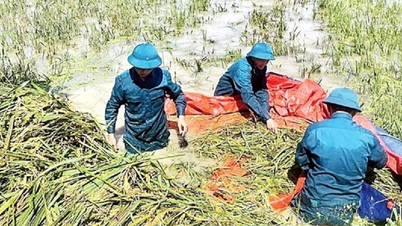

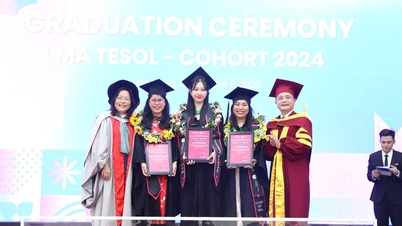










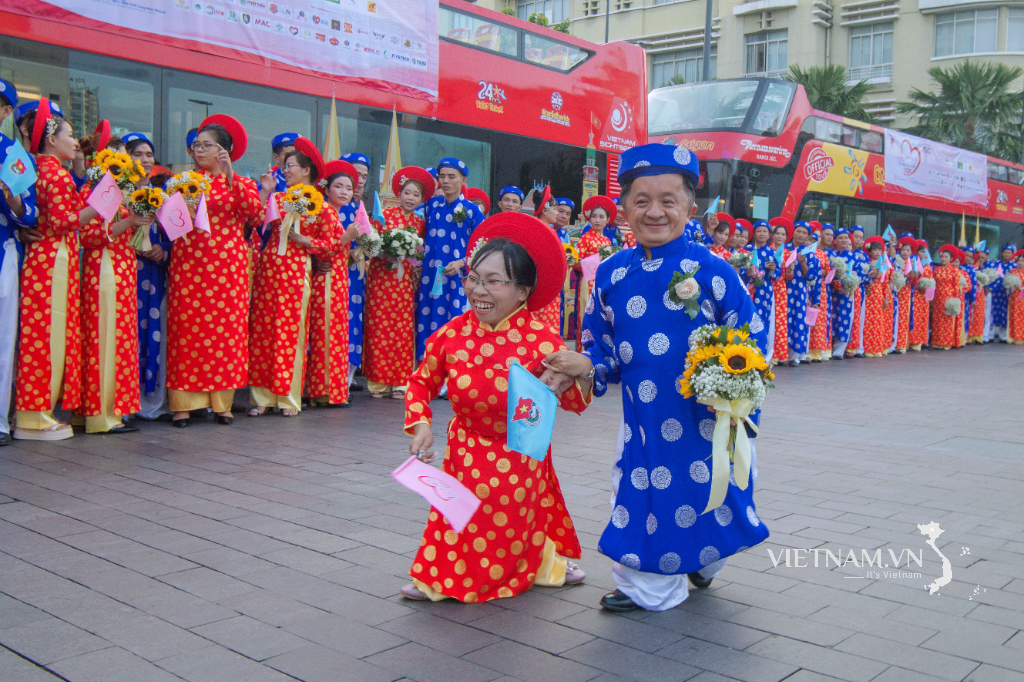

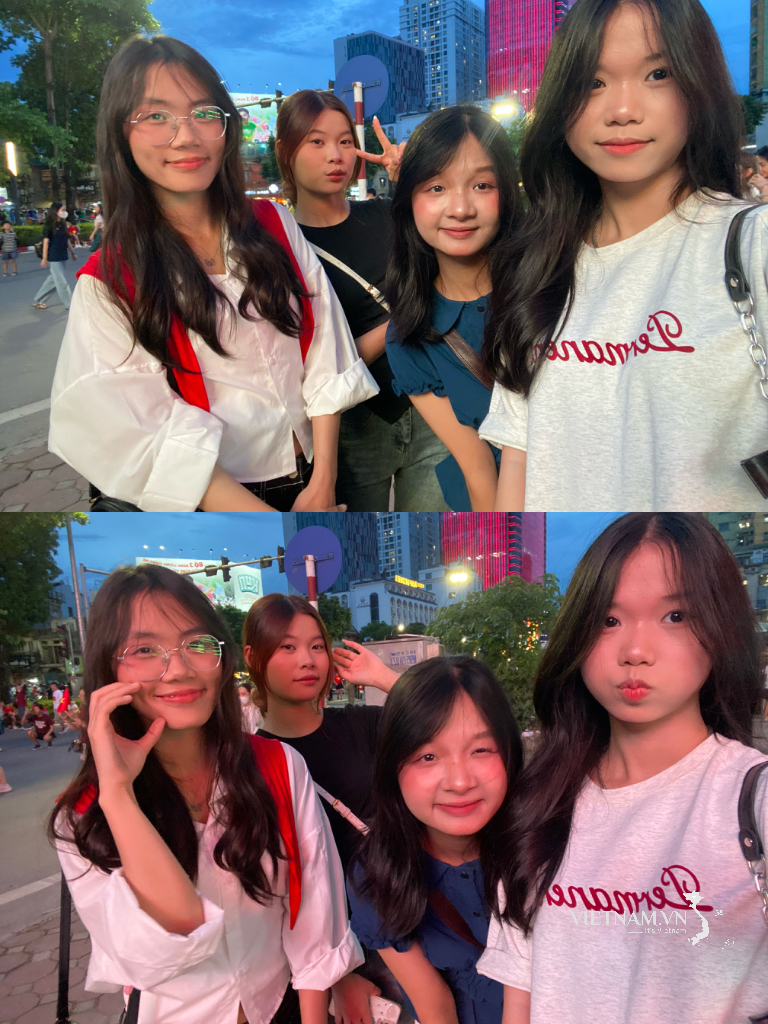
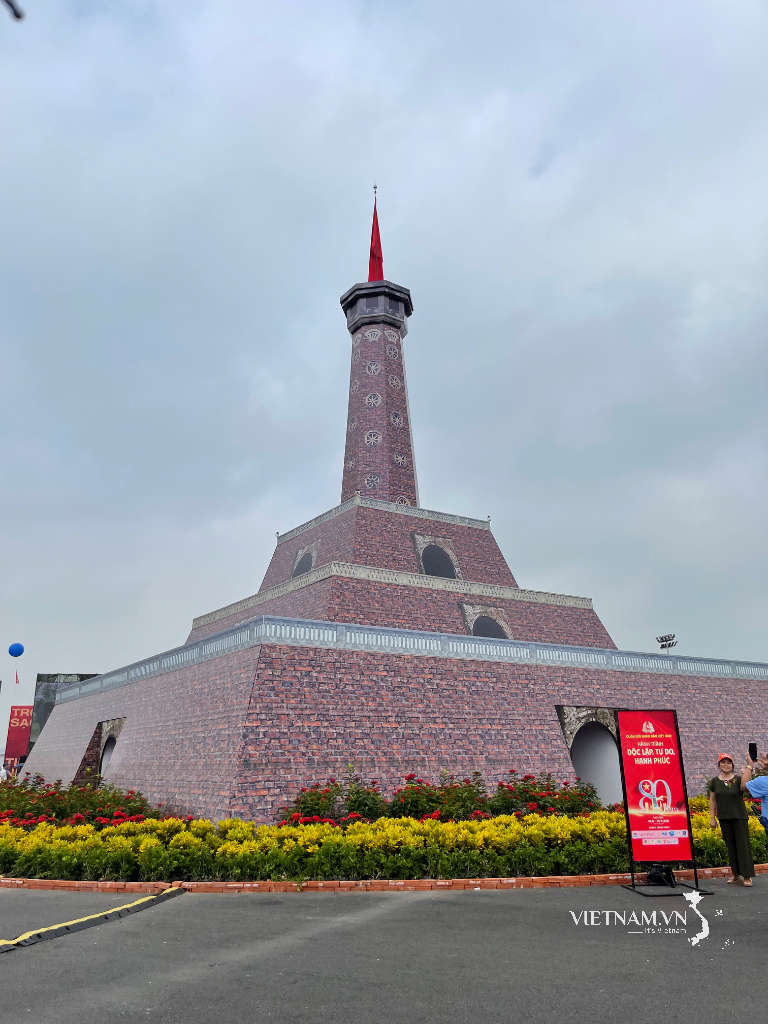




Comment (0)